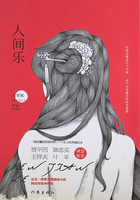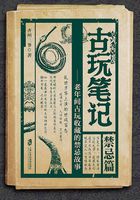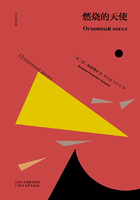The sale was to take place on the 16th. A day's interval had been left between the visiting days and the sale, in order to give time for taking down the hangings, curtains, etc. I had just returned from abroad. It was natural that I had not heard of Marguerite's death among the pieces of news which one's friends always tell on returning after an absence. Marguerite was a pretty woman; but though the life of such women makes sensation enough, their death makes very little. They are suns which set as they rose, unobserved. Their death, when they die young, is heard of by all their lovers at the same moment, for in Paris almost all the lovers of a well-known woman are friends. A few recollections are exchanged, and everybody's life goes on as if the incident had never occurred, without so much as a tear.
Nowadays, at twenty-five, tears have become so rare a thing that they are not to be squandered indiscriminately. It is the most that can be expected if the parents who pay for being wept over are wept over in return for the price they pay.
As for me, though my initials did not occur on any of Marguerite's belongings, that instinctive indulgence, that natural pity that I have already confessed, set me thinking over her death, more perhaps than it was worth thinking over. I remembered having often met Marguerite in the Bois, where she went regularly every day in a little blue coupe drawn by two magnificent bays, and I had noticed in her a distinction quite apart from other women of her kind, a distinction which was enhanced by a really exceptional beauty.
These unfortunate creatures whenever they go out are always accompanied by somebody or other. As no man cares to make himself conspicuous by being seen in their company, and as they are afraid of solitude, they take with them either those who are not well enough off to have a carriage, or one or another of those elegant, ancient ladies, whose elegance is a little inexplicable, and to whom one can always go for information in regard to the women whom they accompany.
In Marguerite's case it was quite different. She was always alone when she drove in the Champs-Elysées, lying back in her carriage as much as possible, dressed in furs in winter, and in summer wearing very simple dresses; and though she often passed people whom she knew, her smile, when she chose to smile, was seen only by them, and a duchess might have smiled in just such a manner. She did not drive to and fro like the others, from the Rond-Point to the end of the Champs-Elysées. She drove straight to the Bois. There she left her carriage, walked for an hour, returned to her carriage, and drove rapidly home.
All these circumstances which I had so often witnessed came back to my memory, and I regretted her death as one might regret the destruction of a beautiful work of art.
It was impossible to see more charm in beauty than in that of Marguerite. Excessively tall and thin, she had in the fullest degree the art of repairing this oversight of Nature by the mere arrangement of the things she wore. Her cashmere reached to the ground, and showed on each side the large flounces of a silk dress, and the heavy muff which she held pressed against her bosom was surrounded by such cunningly arranged folds that the eye, however exacting, could find no fault with the contour of the lines. Her head, a marvel, was the object of the most coquettish care. It was small, and her mother, as Musset would say, seemed to have made it so in order to make it with care.
Set, in an oval of indescribable grace, two black eyes, surmounted by eyebrows of so pure a curve that it seemed as if painted; veil these eyes with lovely lashes, which, when drooped, cast their shadow on the rosy hue of the cheeks; trace a delicate, straight nose, the nostrils a little open, in an ardent aspiration toward the life of the senses; design a regular mouth, with lips parted graciously over teeth as white as milk; colour the skin with the down of a peach that no hand has touched, and you will have the general aspect of that charming countenance. The hair, black as jet, waving naturally or not, was parted on the forehead in two large folds and draped back over the head, leaving in sight just the tip of the ears, in which there glittered two diamonds, worth four to five thousand francs each. How it was that her ardent life had left on Marguerite's face the virginal, almost childlike expression, which characterized it, is a problem which we can but state, without attempting to solve it.
Marguerite had a marvellous portrait of herself, by Vidal, the only man whose pencil could do her justice. I had this portrait by me for a few days after her death, and the likeness was so astonishing that it has helped to refresh my memory in regard to some points which I might not otherwise have remembered.
Some among the details of this 第章 Chapter did not reach me until later, but I write them here so as not to be obliged to return to them when the story itself has begun.
Marguerite was always present at every first night, and passed every evening either at the theatre or the ball. Whenever there was a new piece she was certain to be seen, and she invariably had three things with her on the ledge of her ground-floor box: her opera-glass, a bag of sweets, and a bouquet of camellias.
For twenty-five days of the month the camellias were white, and for five they were red; no one ever knew the reason of this change of colour, which I mention though I can not explain it; it was noticed both by her friends and by the habitue's of the theatres to which she most often went. She was never seen with any flowers but camellias. At the florist's, Madame Barjon's, she had come to be called "the Lady of the Camellias," and the name stuck to her.
Like all those who move in a certain set in Paris, I knew that Marguerite had lived with some of the most fashionable young men in society, that she spoke of it openly, and that they themselves boasted of it; so that all seemed equally pleased with one another. Nevertheless, for about three years, after a visit to Bagnees, she was said to be living with an old duke, a foreigner, enormously rich, who had tried to remove her as far as possible from her former life, and, as it seemed, entirely to her own satisfaction.
This is what I was told on the subject. In the spring of 1847 Marguerite was so ill that the doctors ordered her to take the waters, and she went to Bagneres. Among the invalids was the daughter of this duke; she was not only suffering from the same complaint, but she was so like Marguerite in appearance that they might have been taken for sisters; the young duchess was in the last stage of consumption, and a few days after Marguerite's arrival she died. One morning, the duke, who had remained at Bagneres to be near the soil that had buried a part of his heart, caught sight of Marguerite at a turn of the road. He seemed to see the shadow of his child, and going up to her, he took her hands, embraced and wept over her, and without even asking her who she was, begged her to let him love in her the living image of his dead child. Marguerite, alone at Bagneres with her maid, and not being in any fear of compromising herself, granted the duke's request. Some people who knew her, happening to be at Bagneres, took upon themselves to explain Mademoiselle Gautier's true position to the duke. It was a blow to the old man, for the resemblance with his daughter was ended in one direction, but it was too late. She had become a necessity to his heart, his only pretext, his only excuse, for living. He made no reproaches, he had indeed no right to do so, but he asked her if she felt herself capable of changing her mode of life, offering her in return for the sacrifice every compensation that she could desire. She consented.
It must be said that Marguerite was just then very ill. The past seemed to her sensitive nature as if it were one of the main causes of her illness, and a sort of superstition led her to hope that God would restore to her both health and beauty in return for her repentance and conversion. By the end of the summer, the waters, sleep, the natural fatigue of long walks, had indeed more or less restored her health. The duke accompanied her to Paris, where he continued to see her as he had done at Bagneres.
This liaison, whose motive and origin were quite unknown, caused a great sensation, for the duke, already known for his immense fortune, now became known for his prodigality. All this was set down to the debauchery of a rich old man, and everything was believed except the truth. The father's sentiment for Marguerite had, in truth, so pure a cause that anything but a communion of hearts would have seemed to him a kind of incest, and he had never spoken to her a word which his daughter might not have heard.
Far be it from me to make out our heroine to be anything but what she was. As long as she remained at Bagneres, the promise she had made to the duke had not been hard to keep, and she had kept it; but, once back in Paris, it seemed to her, accustomed to a life of dissipation, of balls, of orgies, as if the solitude, only interrupted by the duke's stated visits, would kill her with boredom, and the hot breath of her old life came back across her head and heart.
We must add that Marguerite had returned more beautiful than she had ever been; she was but twenty, and her malady, sleeping but not subdued, continued to give her those feverish desires which are almost always the result of diseases of the chest.
It was a great grief to the duke when his friends, always on the lookout for some scandal on the part of the woman with whom, it seemed to them, he was compromising himself, came to tell him, indeed to prove to him, that at times when she was sure of not seeing him she received other visits, and that these visits were often prolonged till the following day. On being questioned, Marguerite admitted everything to the duke, and advised him, without arriere-pensee, to concern himself with her no longer, for she felt incapable of carrying out what she had undertaken, and she did not wish to go on accepting benefits from a man whom she was deceiving. The duke did not return for a week; it was all he could do, and on the eighth day he came to beg Marguerite to let him still visit her, promising that he would take her as she was, so long as he might see her, and swearing that he would never utter a reproach against her, not though he were to die of it.
This, then, was the state of things three months after Marguerite's return; that is to say, in November or December, 1842.















